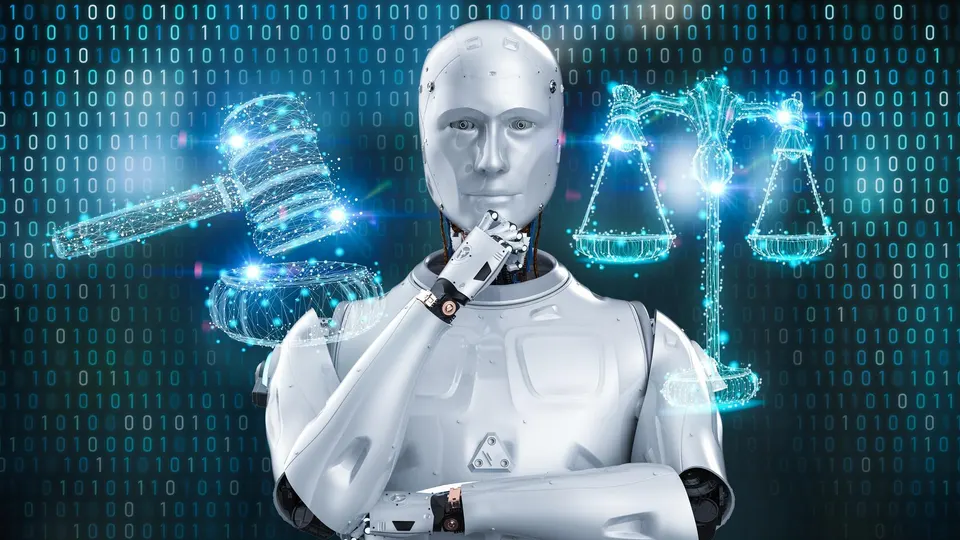
ETHICAL ARTIFICIAL INTELLIGENCE: Navigating the Complex Terrain of Innovation and Responsibility.
Introduction
The rapid progress in artificial intelligence (AI) technologies has ushered in a new era of possibilities and challenges. As AI systems become increasingly integrated into our daily lives, it is imperative that we address the ethical considerations surrounding their development and deployment. Ethical AI encompasses a set of principles and practices aimed at ensuring that AI technologies align with societal values and moral norms. This article delves deeper into the multifaceted aspects of ethical AI, exploring the fundamental principles, intricate challenges, and comprehensive solutions associated with this critical endeavor.
Principles of Ethical AI
Transparency and Explainability:
Ethical AI mandates a level of transparency that allows stakeholders to understand and interpret the decisions and actions of AI systems. This principle necessitates the development of models that are not only accurate but also comprehensible to humans. Achieving transparency requires innovative techniques for model explainability and interpretability, ensuring that AI systems are accountable and trustworthy.
2. Fairness and Bias Mitigation:
Promoting fairness in AI is a linchpin of ethical development. AI models must be designed to mitigate biases that may exist in training data or algorithms. Employing techniques such as adversarial testing and fairness-aware training can help identify and rectify disparities in outcomes, thereby ensuring that AI systems treat all individuals equitably, irrespective of their demographic characteristics.
3. Privacy and Data Protection:
Respecting individual privacy and safeguarding personal data are cornerstones of ethical AI. Developers and organizations must implement robust security measures to prevent unauthorized access or misuse of sensitive information. Complying with data protection regulations and adopting privacy-preserving techniques are paramount in ensuring that AI systems operate in a manner consistent with ethical principles.
4. Beneficence and Human Well-being:
Ethical AI dictates that technology should be harnessed for the betterment of humanity. This principle calls for the development of AI applications that address pressing societal challenges, including healthcare, education, poverty alleviation, and environmental sustainability. Prioritizing human well-being ensures that AI technologies serve as catalysts for positive societal transformation.
5. Accountability and Responsibility:
Ethical AI places a significant emphasis on accountability throughout the entire lifecycle of AI systems. Developers, organizations, and policymakers must take responsibility for the outcomes of AI technologies, establishing mechanisms for redress in cases of harm. Rigorous audits, transparency reports, and impact assessments are essential tools in upholding accountability and trust.
Challenges in Implementing Ethical AI
Data Quality and Bias:
The quality and representativeness of training data remain a critical challenge in ethical AI. Biases present in the data can permeate into AI models, perpetuating existing inequalities and reinforcing stereotypes. Addressing this challenge necessitates careful curation and preprocessing of data, along with ongoing efforts to identify and rectify biases.
2. Interpretability and Explainability:
Achieving transparency and explainability in complex AI models, particularly deep learning models, is an ongoing area of research. Striking a balance between model accuracy and interpretability is a delicate undertaking. Advances in techniques such as attention mechanisms, layer-wise relevance propagation, and rule-based explanations are pivotal in bridging this gap.
3. Trade-offs between Fairness and Efficiency:
Balancing fairness and efficiency in AI systems poses a nuanced challenge. Sometimes, efforts to ensure fairness may result in reduced predictive accuracy, while prioritizing accuracy may lead to biased outcomes. Research into fairness-aware learning algorithms and optimization techniques is instrumental in navigating this intricate trade-off.
4. Ethical Decision-Making:
Teaching AI systems to make ethical decisions that align with human values is a complex endeavor. Defining a universal set of ethical guidelines is fraught with challenges, as ethics can be highly contextual and culturally contingent. Developing frameworks for ethical decision-making, complemented by interdisciplinary collaborations between AI researchers, ethicists, and domain experts, is vital in this pursuit.
Solutions for Ethical AI
Diverse and Inclusive Teams:
Embracing diversity in development teams is paramount in identifying and mitigating biases and ethical concerns. Teams that encompass a wide range of perspectives, including developers, engineers, ethicists, and domain experts, can collectively work towards creating AI systems that are more inclusive, fair, and responsible.
2. Continuous Monitoring and Auditing:
Implementing mechanisms for ongoing monitoring, auditing, and evaluation of AI systems is imperative. This ensures that any ethical issues that may arise over time are promptly identified and rectified. Rigorous testing, benchmarking, and validation protocols play a crucial role in upholding the ethical integrity of AI technologies.
3. Regulatory Frameworks and Standards:
Policymakers and regulatory bodies play a pivotal role in establishing legal frameworks and industry standards for ethical AI. These frameworks provide clear guidelines for developers and organizations, creating a conducive environment for responsible AI development and deployment.
4. Ethical Guidelines and Best Practices:
Industry organizations and professional associations can contribute significantly by formulating and disseminating ethical guidelines and best practices. These resources serve as a compass for developers, offering practical insights and recommendations for creating AI systems that align with ethical principles.
Conclusion
Ethical artificial intelligence represents a pivotal frontier in the trajectory of AI technology. By steadfastly adhering to the principles of transparency, fairness, privacy, beneficence, and accountability, we can cultivate AI systems that serve as forces for positive change. Overcoming the challenges associated with ethical AI requires a concerted and sustained effort from developers, policymakers, ethicists, and society at large. Through collaborative endeavors, we can harness the transformative potential of AI to forge a more inclusive, just, and prosperous future for all.
Chartered Arbitrator & Professor, UoN Faculty of Law (Environmental Law & International Commercial Arbitration)
5moCongratulations 👏🏽